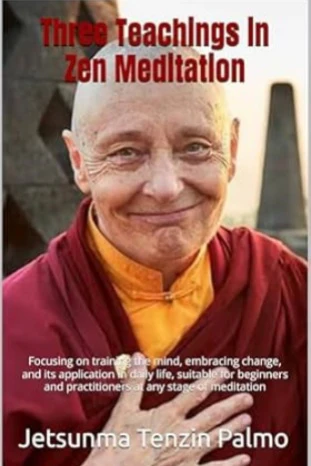When a woman truly awakens, even destiny must give way.
Have You Ever Found Yourself…
Treading carefully in love, afraid of rejection, wondering if you’re ever enough?
Enduring a broken marriage in silence, hoping things might change—but only feeling more lost?
Letting others dictate the course of your life, too afraid to walk the road alone?
Eventually, you come to understand:
This life is your stage—and no one else can play the lead for you.
When you give too much, love too deeply, and expect too little in return, what remains is often exhaustion and heartbreak.
As the Buddha once said:
“All phenomena arise from the mind.”
When you stop waiting, and begin living for yourself, you begin to reshape your own destiny.
01. Never Trade Your Dignity for Love
There was a time when Maye Musk loved blindly and deeply, quietly enduring a toxic relationship.
But true love never asks you to lose yourself in the process.
As the Dhammapada teaches:
“Attachment brings sorrow. Attachment brings fear. One who is free from attachment knows neither sorrow nor fear.”
Her turning point came the moment she left—not because she wasn’t afraid, but because she finally chose to respect herself.
02. No One to Rely On? Rely on Yourself
After her divorce, Maye lived in a small apartment with her children, juggling multiple jobs to survive.
There was no safety net—so she became her own.
She once said:
“The greatest waste of time is waiting for someone to rescue you.”
The Buddha reminded us:
“You are your own master. Who else could be? With self-mastery, you find true refuge.”
A woman’s deepest power does not come from whom she marries—but from the moment she awakens to her own strength.
03. Become Your Own Light—And the World Will Follow
In her forties, Maye’s life began to transform.
She returned to school, reentered the modeling world, and redefined beauty with silver hair and unwavering confidence.
She no longer lived to please others—she lived to stay true to herself.
As the sutra says:
“When wisdom shines, all darkness is dispelled.”
When she became her own light, the world naturally came closer.
She wasn’t just lucky—she simply stopped waiting and started living, fully and unapologetically.
Final Words:
A woman’s true awakening isn’t about becoming tough—it’s about learning to embrace herself, gently and completely.
She may have cried. She may have doubted. She may have leaned too much.
But eventually, she rose from her pain—and reclaimed the authorship of her own life.
As the Buddha said:
“Better to walk alone on the path of truth than to follow the crowd on the path of illusion.”
May you awaken after heartbreak—wiser, not bitter.
May you be reborn in stillness—not broken, but gathering power.
May you become your own light—not waiting for someone else to light the way.
Today’s Book Recommendation: Three Teachings in Zen Meditation
The core message of the text emphasizes the importance of training the mind, confronting its uncontrolled nature, and cultivating patience and perseverance, particularly through the practice of zen meditation. It underscores the idea that by taming the mind, one becomes the master rather than a slave to emotions. The text also highlights the importance of maintaining a sharp and fearless mind, free from the drag of past memories and fears. Additionally, it stresses the significance of bringing awareness and attention into daily life, especially in interactions with individuals with whom we have karmic connections. Our suffering is caused not by the possessions themselves, but by our attitude towards them, highlighting the nature of attachment. It encourages the reader to work on lessening attachment and greed in the mind through everyday experiences.Bringing meditation into practice, making zen meditation a way of life. Check it out.









